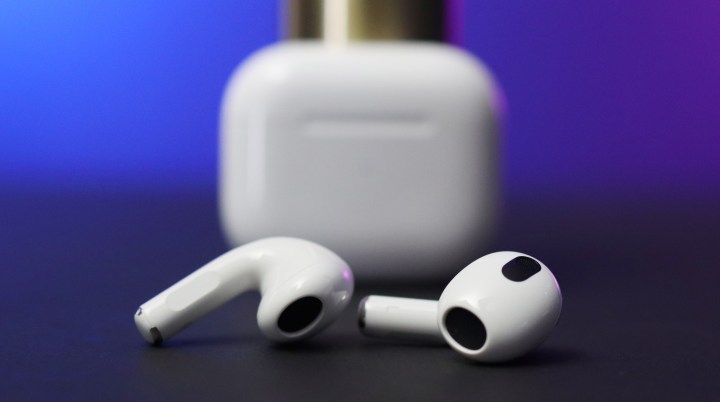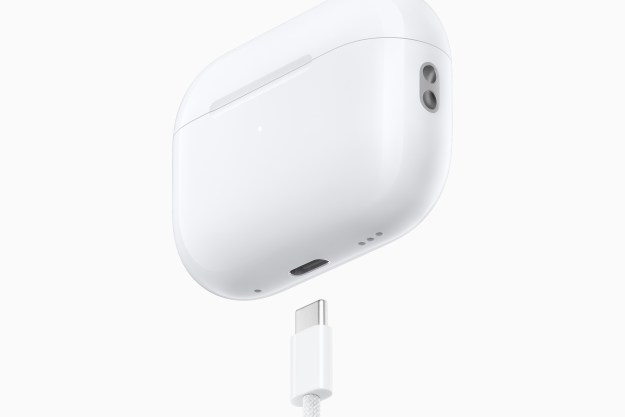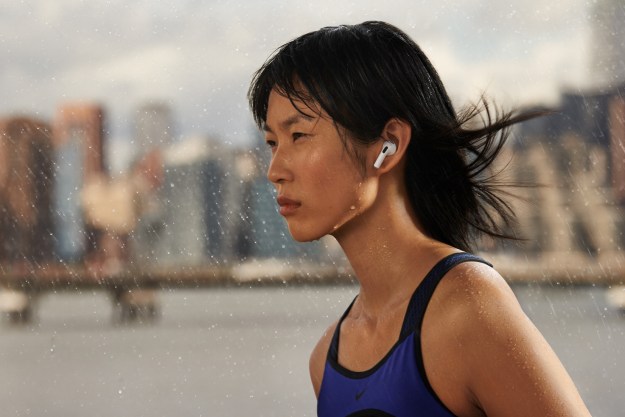Ever since Apple debuted its now-iconic AirPods true wireless earbuds, it has been expanding what these handy devices can do. The list now includes hands-free access to Siri, enhanced hearing with Conversation Boost, head-tracking spatial audio, and the super-popular combo of active noise cancellation (ANC) and transparency mode. But if a recently published patent application is any indication, Apple could soon let a trusted person remotely disable ANC mode, just by uttering a pre-determined word or phrase.
The patent application, entitled “Interrupt for noise cancelling audio devices” was first spotted by AppleInsider, and it details — at great length — how AirPods owners could allow their attention to be grabbed by another person, by automatically shutting off ANC mode when that person says a specific passphrase.

In some ways, the technology involved isn’t that different than what current AirPods do when they’re waiting for you to say the words, “Hey, Siri.” Except that the application reveals the extra due diligence such a system would require in order to avoid unwanted interruptions.
Several mechanisms could be involved. The first line of defense appears to be the earbuds themselves, which would conduct an initial test to see if the voice in question matches one of the people to whom you’ve granted interrupt powers. Then, because that person might be speaking to someone else, the earbuds would be able to do a quick proximity calculation to figure out how close they’re standing to you, and whether they’re standing in front of you or behind you.
But if the earbuds aren’t confident they’ve reached the necessary threshold needed to ID this person, they could leverage additional data on your iPhone. In an ideal world, the person who wants to get your attention also has their phone on them, and that could act as a final and trusted form of ID.
It’s not hard to come up with all kinds of scenarios where this could come in handy. All too often I’ve been startled by a hand on my shoulder as my spouse tries to bring me back from my ANC-induced cone of silence. It would be way easier on my nervous system if she could simply say, “Hey, Simon,” and my AirPods Pro would respond automatically by shifting into transparency mode.
But Apple envisions other situations too, like when you’re on a flight. You could — with a flight attendant’s permission — sample their voice so that you didn’t miss any in-flight announcements. For privacy purposes, this sample would be deleted as soon as you stepped off your airplane. In fact, the application makes it clear that Apple would treat all personally identifiable information like voice samples with industry-standard privacy safeguards.

Also contemplated in the application are other kinds of reactions to detected voices or keywords. Your iPhone or Mac computer could display a specific message or another visual indicator. Other reactions could be tactile in nature, like having your Apple Watch or iPhone vibrate in a specific pattern to get your attention, instead of switching the ANC mode on your earbuds.
It’s worth noting that a patent application is no guarantee that a new feature is on the way — sometimes a company will apply for a patent just to declare their ownership of an idea. And anytime personally identifiable info is used by technology, the potential for abuse exists, so Apple’s idea could still have significant hurdles to overcome.
But there’s no question that as our devices increasingly let us unplug from the real world — whether it’s through ANC or full immersion into the metaverse — we’re going to need ways for the people we trust to pull us back to reality. Even if it’s only to make sure we’re not late to the dinner table.
Editors' Recommendations
- AirPods 4: Everything we know about Apple’s next wireless earbuds
- Did your AirPods Pro noise cancellation just get worse?
- What we want from the AirPods Pro in 2024
- New AirPods teased for 2024, to little surprise
- When it comes to charging AirPods Pro with USB-C, don’t overthink it



